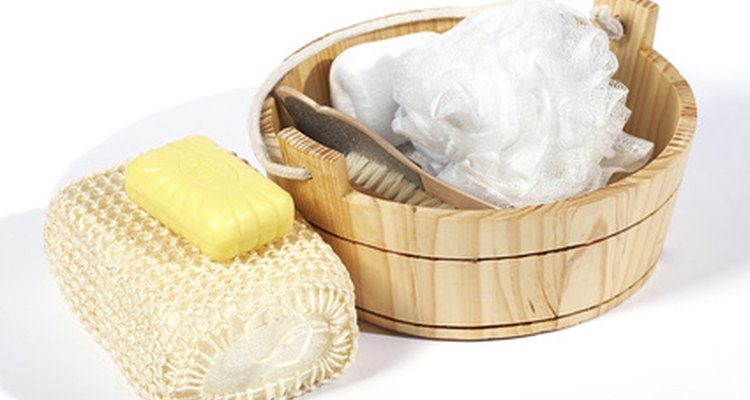
Proper hygiene involves taking care of your physical and emotional health with careful grooming and good sleep habits, and by staying clean. People with poor hygiene--whether it's reflected in bad breath, dirty hands, dandruff or body odor--may experience adverse reactions when interacting with others. They may also experience infections and other health problems that could threaten their ability to earn a living. Practicing good hygiene can enrich your professional and personal lives.
Significance
Cleanliness is an important public health issue. Poor hygiene is socially unacceptable and unhealthy. Proper hygiene encompasses practices that promote public health. Personal hygiene is especially important in publicly accessible environments, such as office buildings, restaurants and shopping centers. When in a community setting, people who do not wash their hands properly can spread infectious diseases. In a restaurant setting, disease can spread to food through both patrons and workers with poor grooming and hygiene.
Social Health
Failure to maintain proper standards of hygiene can have many adverse social and psychological implications, such as ridicule, embarrassment and societal alienation. Children with bad personal hygiene may be bullied or ridiculed. Poorly groomed professionals may be avoided by colleagues. Body odor, bad breath and dirty fingernails may limit a person's ability to interact and connect with others. When you practice proper hygiene, it boosts your personal confidence. People who are well groomed are more likely to develop emotionally fulfilling relationships and enjoy rewarding careers.
Physical Health
People with poor hygiene are more susceptible to health problems and irritations. Body-lice infestation is a prominent public-health problem in areas lacking good hygiene and sanitation standards. Many hair and scalp conditions, such as dandruff, lice and scalp grease, are avoidable through regular hair washing. Hair, clothing and skin can absorb the odor of strong-smelling foods and products, such as cigarettes, and contribute to body odor. Failure to bathe regularly can exacerbate body odor and lead to fungal infections. Gum disease, bad breath and dental cavities are common problems for people who do not practice good oral hygiene.
Good Sleep Hygiene
Many people overstimulate themselves with late-night activities, such as watching television, and do not get adequate rest. People who sleep poorly are likely to experience fatigue, irritability and decreased concentration during the day. These people are at greater risk for accidents and falls. Sleep deprivation also weakens the immune system, making people more vulnerable to illness. Getting enough sleep improves heart health, bolsters memory, reduces stress and increases mental alertness.
Possibly Fatal
Poor hygiene is potentially deadly. In the 1330s, millions of people in Europe died from bubonic plague. They were particularly vulnerable to infection because of inadequate hygiene standards, crowded living conditions and poor sanitation, conditions that still exist in many places in the world today.
Among other things, people with poor hygiene may encounter methicillian-resistant staphylococcus aureus infections, more commonly referred to as MRSA. According to the Centers for Disease Control and Prevention (CDC), the symptoms of MRSA include abscesses, boils and other pus-filled lesions. The condition is resistant to some antibiotics, including methicillin, oxacillin, penicillin and amoxicillin. If not properly diagnosed or treated, people infected with MRSA can spread the disease to others, and may die.
Related Articles

The Effects of Poor Personal Hygiene

The Objectives of Proper Hygiene

What Are Independent Living Skills?

How to Sterilize Eyeglasses

Facts About Orphans

Caregiver Support Group Discussion ...

Importance of a Bed Bath

Tea Tree Oil Cure for Halitosis

Copper Peptides Side Effects

How to Reduce Acne Inflammation

Consequences of Wearing Grillz

Three Warning Signs of Neglect

Pros & Cons of Mouth Grills

Reasons for Personal Grooming

What Are the Benefits of Self ...

Health Risks of Marble Dust

Symptoms of Food Poisoning With Oysters

Oily Hair and Acne

How Exercise Increases Hair Growth

Rules for Employees That Work at a ...
Writer Bio
Alyssa Guzman has written online content for eHow and Answerbag since 2010. She is a "journalist of all trades" and writes on many subjects including travel and leisure, animal health, informaton technology, business etiquette and exotic flowering plants. Guzman was a communications studies major at the Florida State University.
Photo Credits
hygiene things image by AGphotographer from Fotolia.com